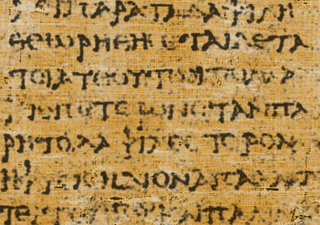Researchers develop AI tool to help people crack funnier jokes
Researchers develop AI tool to help people crack funnier jokes that are not only funnier but easier to come up with.

Being funny isn’t easy, especially when you're trying to crack a joke in a language that's not your first. Recognising this, researchers at the University of Sydney developed a nifty tool using artificial intelligence (AI) designed to help make people’s jokes not only funnier but easier to come up with for everyone, whether you’re a native speaker or not.
Made specifically to spice up submissions to The New Yorker's Cartoon Caption Contest, the AI tool was created as part of a study involving 20 participants, none of whom had much background in crafting punchlines (not ones that land anyway).
The participants were tasked with putting together 400 captions, half aided by AI and half unassisted. Then, a random 67 people rated their humour. The results? Captions created with AI help were almost 30 per cent closer to the humour level of The New Yorker’s winning entries.
Jokes written using AI vs New Yorker cartoons
Almost half (95 out of the 200 jokes) written with the help of AI were also rated as funnier than the original cartoon captions by The New Yorker.
A cartoon by @karlstevensart, from 2019. #NewYorkerCartoons https://t.co/g33WzdcNBt pic.twitter.com/X8KqAxbVor
— The New Yorker (@NewYorker) April 20, 2024
"The AI tool helps people be significantly funnier, but more importantly, it may be a cure for writer's block," explained Dr Anusha Withana from the University's School of Computer Science and Digital Sciences Initiative.
This AI assistant is particularly helpful for non-native speakers, making it easier for them to understand and play along with cultural nuances in humour.
Understanding the challenges involved in fitting into new cultures, Dr Withana added: "In a new country I would often find myself ‘off-key’,” he said. "For example, I once made a sarcastic comment that didn't go down well in Germany. Here in Australia, it would have gotten a laugh."
The AI operates by analysing cartoon descriptions and suggesting unexpectedly humorous words. For example, in a scene involving a rabbit suit, the AI suggested "rabbit" and "soup," leading to the funny mix-up, "I meant the rabbit soup, not suit."
"Humour is such an important way to relate to others,” added Hasindu Kariyawasam, the research project lead. “It is also important for emotional well-being and creativity, and for managing stress, depression, and anxiety. As a non-native speaker myself, I found the system helped me write jokes more easily, and it made the experience fun."
This innovative AI tool was first shown off at the Intelligent User Interfaces conference last month, demonstrating how the tech can enhance not only our productivity but also our social interactions and sense of humour.
But will AI ever be as funny as a real-life, human comedian? Well, the jury is still out on that one…








